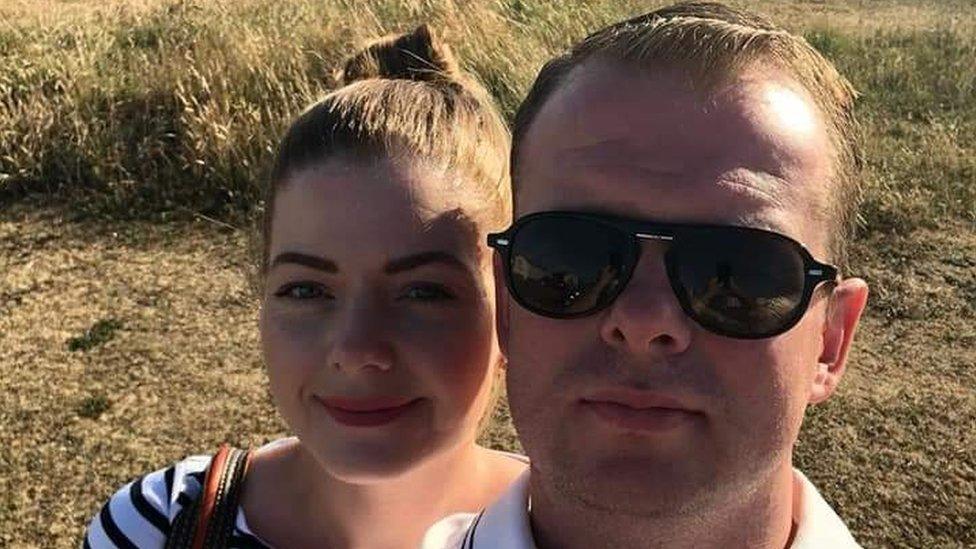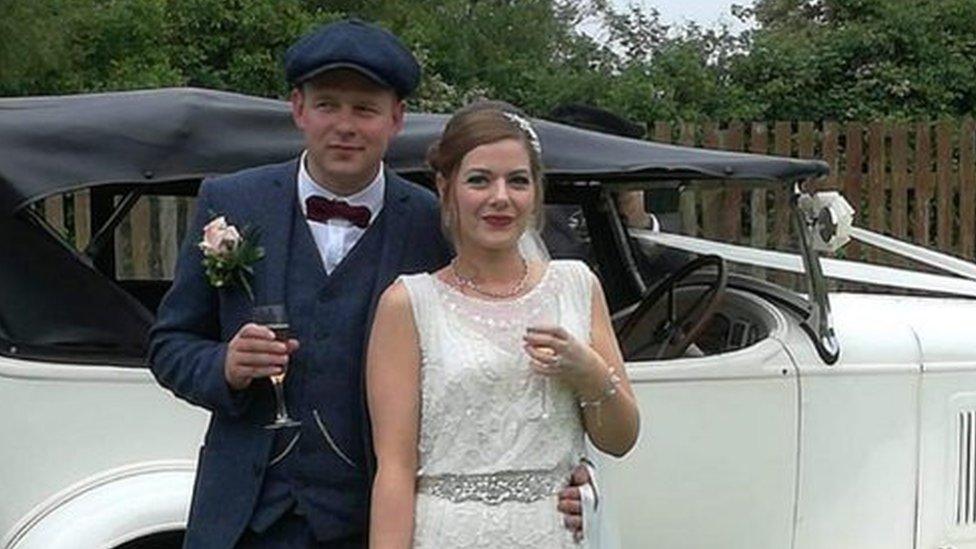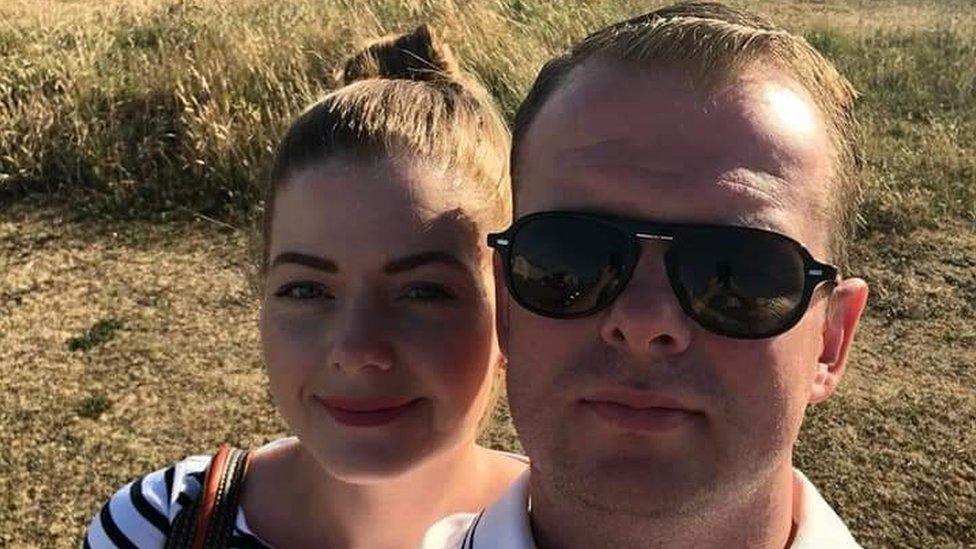Luke Ashton inquest: Betfair said gambler was 'low risk' before he died
- Published

Annie Ashton told the inquest her husband Luke relapsed into gambling before his death
A betting company has told an inquest a man who died after building up huge gambling debts was a "low risk" customer.
Luke Ashton, from Leicester, died in April 2021 after building up gambling debts of £18,000.
His wife Annie told the hearing he killed himself after relapsing into addiction when he was offered a free bet by Betfair.
The firm said his betting patterns had not been unusual before he died.
The inquest, at Leicester Town Hall, was told the number of online bets Mr Ashton placed spiked in the month before his death and he increased the amounts he staked.
However Richard Clarke, the managing director of customer relations for Flutter UKI - Betfair's parent company - said the firm's algorithm found nothing in his betting patterns that would trigger human intervention that might have restricted his gambling.
Instead Mr Ashton was sent eight automated and generic "awareness" emails by the company.

Annie and Luke had been at school together but only became a couple in 2008
Lawyers for Mr Ashton's family had said the company should have spotted his "erratic" betting and intervened as he chased his losses before his death.
Mr Ashton had decided to "self-exclude" himself on occasions in 2013, 2014 and 2016, as being high risk.
He placed 1,229 bets in March 2021 and on one day of that month alone he deposited £2,500.
However, Mr Clarke said Mr Ashton had not met the threshold for a human review of his account.
He said the company relied on a computer model that analysed 277 elements of its customers' betting daily to pick out problem gamblers who would then be telephoned by its player protection team.
He told the hearing: "The challenge in Luke's case was trying to see him from the crowd of customers who are are very savvy."
Mr Clarke said Mr Ashton almost exclusively used the Betfair Exchange product, where customers can bet against each other, and, even on his most active days, there were thousands of customers betting higher amounts more frequently than he was.
He added the £2,500 deposited on 5 March was not unusual for Betfair Exchange users.
He said the system therefore had not identified Mr Ashton for intervention.
'Tragic outcome'
Jesse Nicholls, representing the Ashton family, read from a report prepared for the coroner by independent expert and economist Prof David Forrest.
Mr Nicholls said: "His conclusion was Betfair should have identified Luke as at risk of gambling harm and taken more and stronger steps to make him safe particularly in that period of early 2021."
He asked Mr Clarke if he felt the company should have done more.
Mr Clarke said: "We have looked very carefully at the actions we took and we are confident we met the regulatory standard at the time.
"As a company, obviously looking at the tragic outcome here, I would love to have done more."
He said Betfair had introduced further safeguards since 2021, including deposit limits from customers returning from self-exclusion periods and financial vulnerability checks, but they came in before the firm was made aware of Mr Ashton's death.
The inquest continues.

If you have been affected by any of the issues in this story, you can visit the BBC Action Line for help.

Follow BBC East Midlands on Facebook, external, on Twitter, external, or on Instagram, external. Send your story ideas to eastmidsnews@bbc.co.uk, external.
- Published14 June 2023

- Published23 November 2022

- Published4 October 2021
